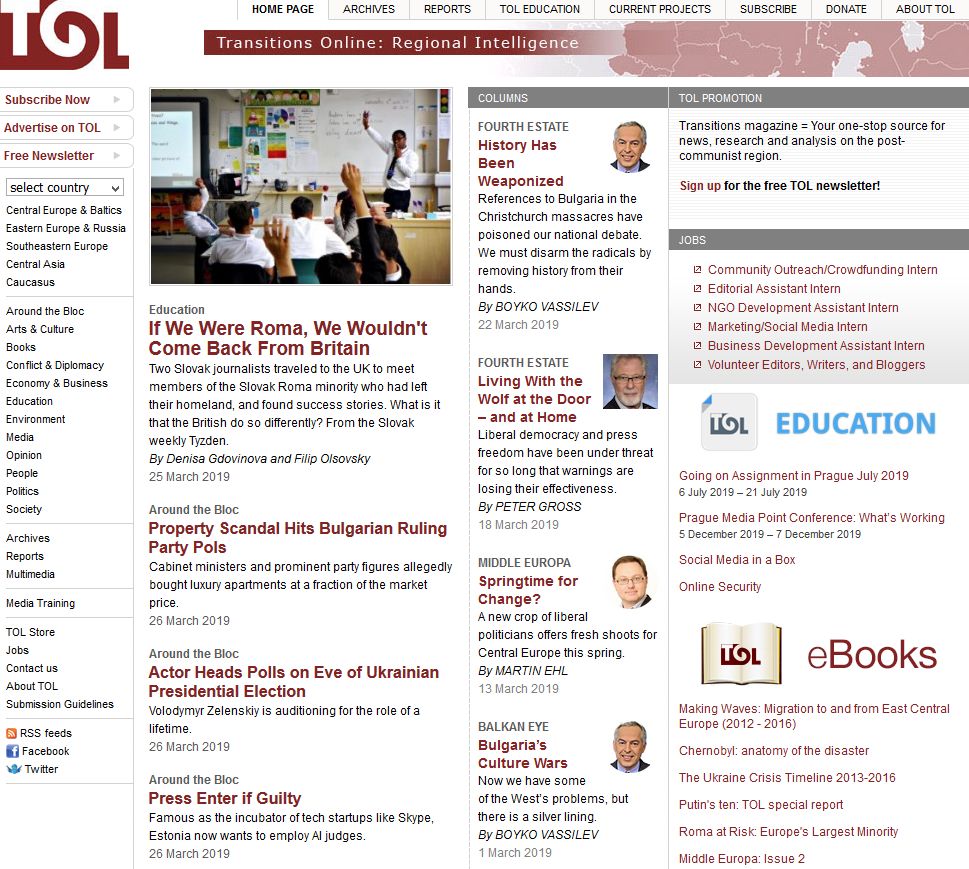
Transitions Online_Around the Bloc-Kyrgyz-Tajik Border Clash Resolved
Disputes over water use in area bordering the Ferghana Valley underlie regular incidents around Tajik exclave.
More...We kindly inform you that, as long as the subject affiliation of our 300.000+ articles is in progress, you might get unsufficient or no results on your third level or second level search. In this case, please broaden your search criteria.

Disputes over water use in area bordering the Ferghana Valley underlie regular incidents around Tajik exclave.
More...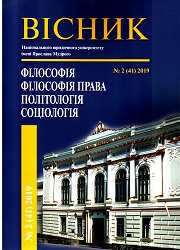
Problem setting. Assessments of perception and attitude towards corruption are the basis of most of the monitoring of anticorruption potential in the world as well as in Ukraine. They are most often the subject of scientific discourse. However, unresolved issues are related not so much to the measurement as to the factors that determine the peculiarities of the perception of corruption.Analysis of actual research. The problem of corruption was widely studied in the works of such prominent Western scholars as G. Broadman, G. Davos, D. Kaufman, P. Mauro, V. Miller, S. Rose-Exerman, V. Dances, E. Tebaldi, J. Helman, M. Horton et al. Among the Russian and Ukrainian researchers, corruption problems should be mentioned by L. Bagryi- Shakhmatov, O. Baranovsky, A. Bovu, Y. Kuzminov, M. Melnyk, T. Koshechkin and others like that. Issues of effective prevention and counteraction of corruption, implementation of anticorruption policy, cooperation between civil society and authorities in combating corruption were investigated by Ukrainian researchers such as V. Martynenko, A. Mikhnenko, E. Makarenko, S. Kravchenko, O. Sosnin, Yu. Kannish, E. Nevmerzhitsky and many others.The purpose of this article is the analysis the factors that determine the peculiarities of perceptions of corruption in Ukraine and thus explain the phenomenon of low anticorruption potential.Presenting the main material. Corruption counteraction requires definite and consistent ideas about the essence and forms of corrupt behavior. In other words, in the course of development and implementation of a national anticorruption policy, it is important to consider existing standards or stereotypes in the understanding of corruption. People rely on such standards in their assessments of various dimensions of corruption, which, sometimes, differ from a legislative vision of the essence and forms of corruption entirely. In the countries where the process of implementation of the international anticorruption conventions containing fundamental or model descriptions of elements of corruption crimes has not been completed, the picture is even more complicated. For instance, prior to June 2009 (the first attempt to pass “the anticorruption package”), only an insignificant number of administrative offences was classified as corruption under the Ukrainian law. At the same time, various types of actions were regarded as corruption both by the public and by politicians.From a legal standpoint, there is presumed knowledge of the law. In other words, for the purposes of law enforcement, it is presumed that every citizen is aware of the types of actions that are considered corruption crimes or administrative corruption offences in a given society. However, social reality considerably deviates from the regulatory model of the anticorruption laws. Besides, the problem in this case is much more complex than a mere knowledge of respective legal provisions.Conclusions. In the public opinion, corruption may take various forms; and a model described in an anticorruption law is not always acceptable for people. Moreover, there are types of actions that look like corruption but are not corruption from a legal perspective; conversely, circumstances that may not look corrupt at first sight are corruption under the law. It is very important to determine how respondents understand corruption and how they distinguish its various forms in specific everyday situations. From a sociocultural perspective, perceived assessments of corruption depend on the public conceptions of corruption.The problem has received essentially no attention in the studies conducted in Ukraine. To an extent, an explanation could be that there were no legal experts in the research groups carrying these surveys out and that the conceptions of sociologists in respect of corruption were, at best, incomplete or superficial, because they covered only most common forms of corrupt conduct, i.e. bribery and abuse of power. Legal subtleties associated with the definition of offenders, elements of crime, types of liability and correlation between moral and legal aspects etc. have been left without attention of the methodology designers.In this case, these findings could be used as «background information» in the interpretation of findings received in respect of the public perceptions of corruption and the extent of involvement in corrupt relations.
More...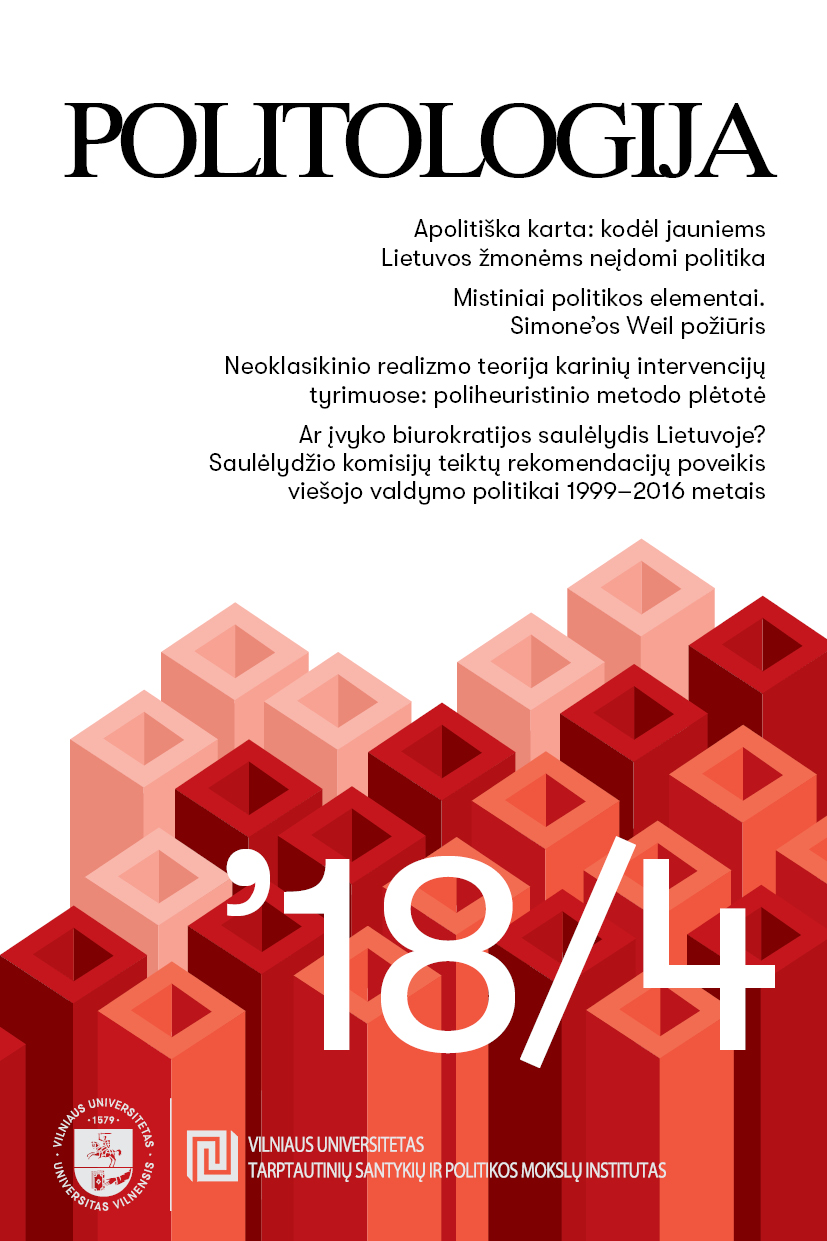
In the recent years, consolidated democracies have faced a great decline in citizens’ participation and interest in political life. The latest researches show that young people are especially disengaged and alien to political life. Moreover, Lithuania seems to have the greatest number of young people who are not interested in politics in the “socalled” developed world (OECD countries and candidates) and has the highest gap between the general and the youth interest in politics. Therefore, this article analyzes what are the reasons for the disinterest in politics of the youth in Lithuania. Contemporary theories and empirical researches suggest rather different answers to the question. In particular, it is said that youths’ interest in politics can be determined by three categories of factors: socioeconomic/sociodemographic (income, wellbeing, education, race and gender), psychological (political efficacy: self-confidence as internal political efficacy and trust in political system as external political efficacy) as well as socializing factors (discussions with family and friends, media, volunteering). In order to find why Lithuania has such a high level of youth disinterest in politics, the analysis is performed on an individual level. Logistic regression analysis shows that the most relevant determinants for the youth interest in politics in Lithuania are a greater usage of media, accompanied with more frequent discussions with family and friends, a higher trust in the parliament as well as a higher level of education. Yet, the greatest determinant of whether a young person will be interested in politics are the elections; i.e., data from the year 2016 signalizes a much greater youth interest in politics compared to the 2012, thus inviting to analyze more deeply the existing differences between the two elections. To check if the variables had proved significant on the individual level, bore any semblance on the country level and explained the exception of Lithuania, an aggregate analysis was conducted. Correlations were found between the level of youth disinterest in politics and income per capita, trust in the national government, discussions with friends and the usage of media. Lithuania, the Czech Republic, Hungary and Slovakia appear to be in one group based on most of the analyzed criteria. Though altogether these factors seem to be pretty good determinants, the Lithuanian case is, however, not fully explained by them – a regression model is unable to predict almost one fifth of the young people that are disinterested in politics in Lithuania. Thus, the usual suspects do not explain this phenomenon fully, and particular countries should be explored more deeply.
More...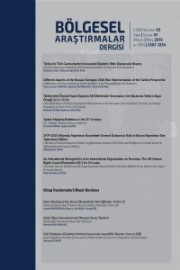
The aim of this study is to examine the experienced science diplomacy among Turkeyand Azerbaijan, Kazakhstan, Kyrgyzstan, Uzbekistan, and Turkmenistan. This studyalso aims to present, strategy proposals that could be implemented by Turkey.Turkey has benefited from science diplomacy in terms of improving its relations withthe countries mentioned above since 1991. On the other hand, the relations betweenthe Nations have failed to yield progress since 1991-2008 (Recession Period).Nevertheless, these relations improved during 2008-2019 (Acceleration Period).With that said, Turkey could implement various strategies in order to improve itscurrent situation.
More...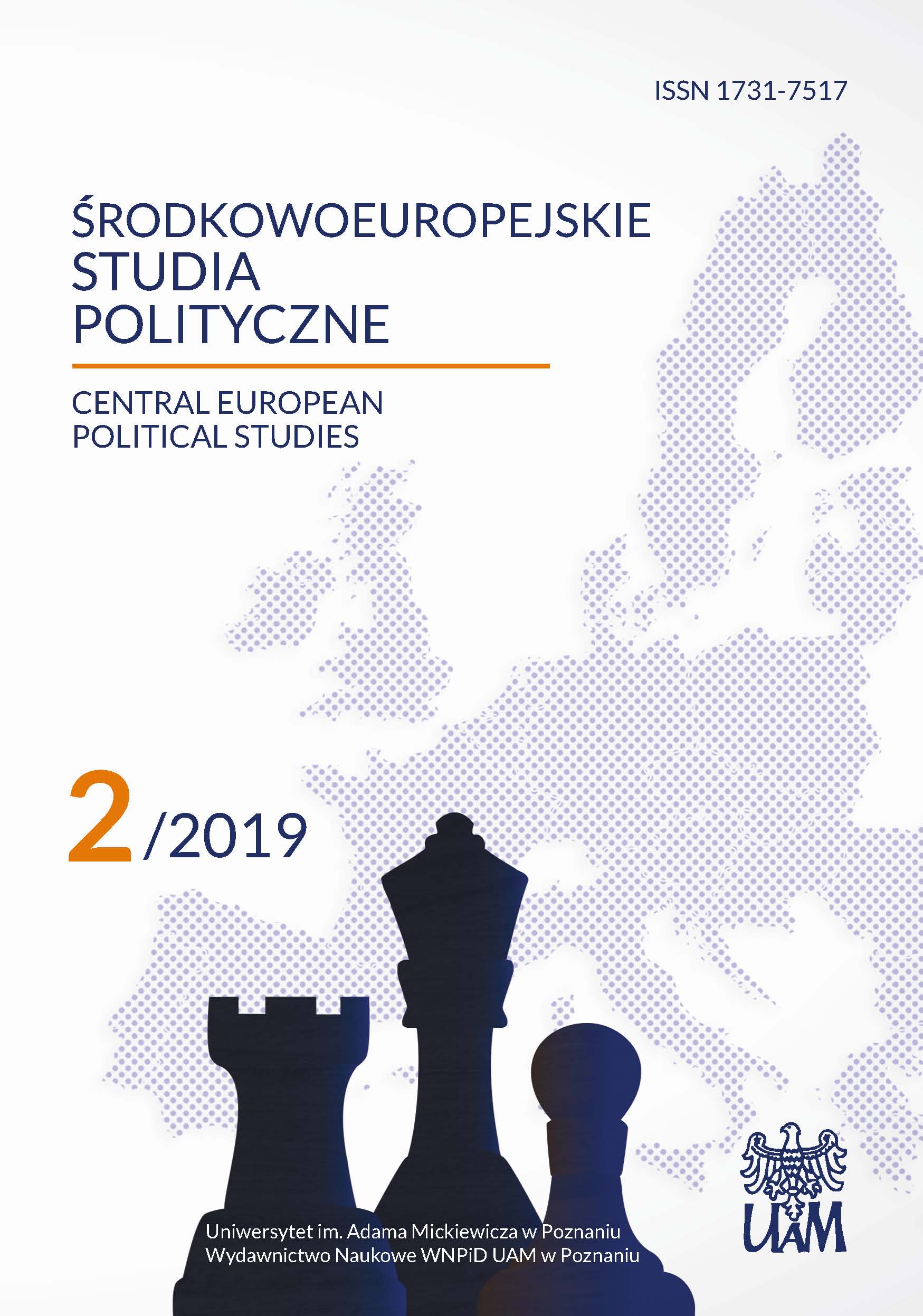
One of the first laws adopted by the new political leadership in Ukrainein the aftermath of the Revolution of Dignity in 2014 was the new concept of localgovernance reform and the organization of territorial authority in Ukraine. The aforementionedlaw, as well as official declarations by top politicians on the necessity ofempowering Ukrainian citizens to take part in the decision-making process and shapetheir local communities, led to positive expectations regarding the transformation oflocal governance in Ukraine. Therefore, this article addresses the issue of the legalbasis framing the functioning of civil society in Ukraine, focusing on major attemptsto conduct reform and on the main outcomes of implemented actions. Additionally,emphasis is placed on the current state of cooperation between social and politicalactors, and the trends in civil participation in the decision-making process regardingdecentralization and local governance reform in Ukraine.
More...
This article aims to identify the major cores of the 15-M Movement mindsetand explain how particular historical factors shaped it. The research problems are to identifythe types of relations the movement established between the people and the rulingelites in its political manifestos, and the sources of these discursively created relations.The research field encompasses the content of political manifestos published betweenthe Spanish general election on March 9, 2008 and immediately after the demonstrationsheld on May 15, 2011. To solve these problems, the research applies source analysis ofthe political manifestos. These are: (1) The Manifesto of ¡Democracia Real YA!; (2) TheManifesto of the Puerta del Sol Camp, and (3) The Manifesto “May 68 in Spain.” Theresearch uses the technique of relational qualitative content analysis to determine therelations between the semantic fields of the major categories of populism, ‘the people’and ‘the elites,’ as well as to identify the meanings formed by their co-occurrence. Thetool used is a content analysis instruction whose major assumption is to identify all theattempts to create images of ‘the people,’ ‘the elites,’ and relations between them.
More...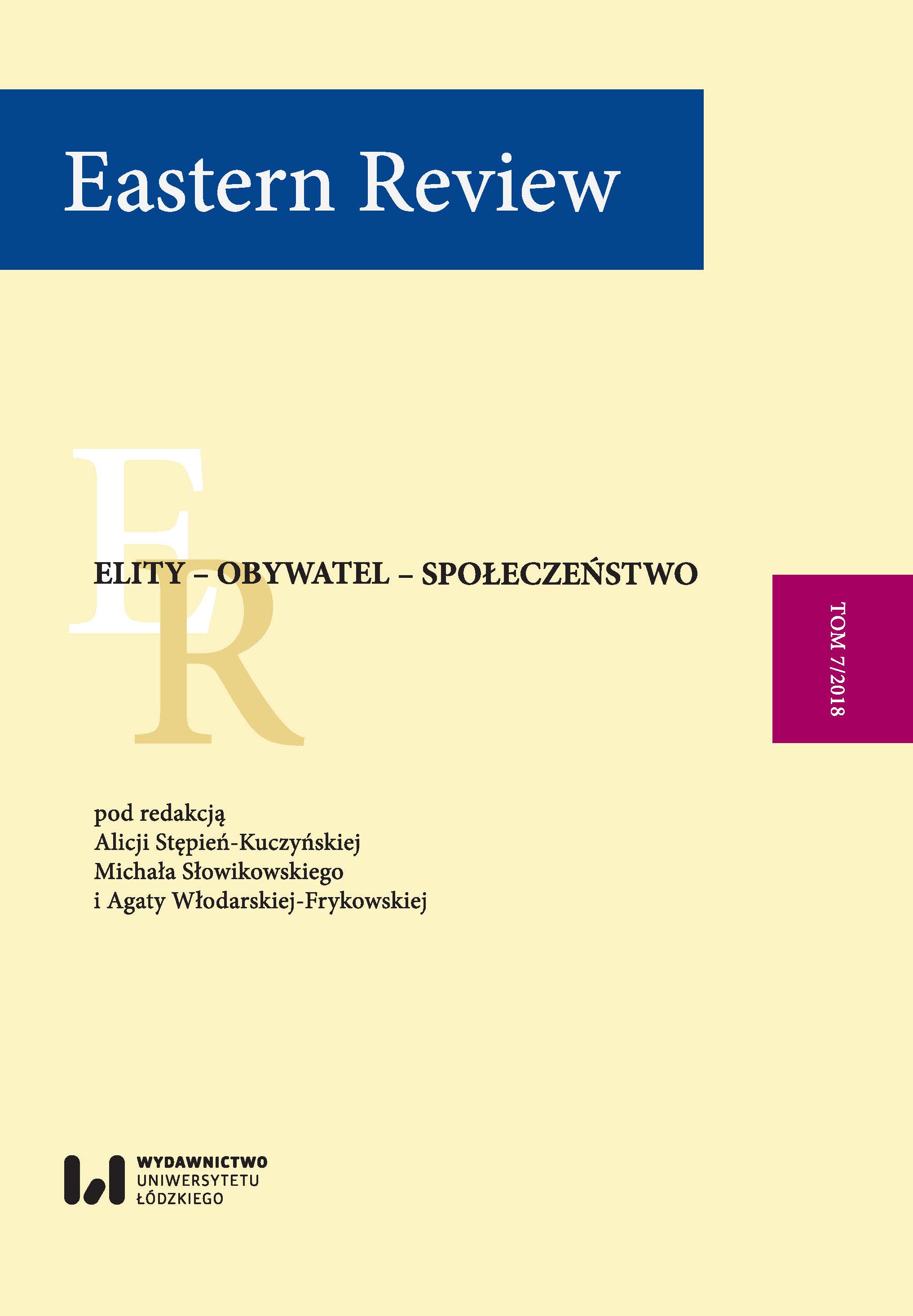
The starting point for the present research paper is the concept of civic competence, which was originally formulated by R. Dahl. In the adopted model civic competence is viewed as a four-dimensional construct consisting of: cognitive competence, evaluative competence, normative competence and causative competence. The article comprises a project of implementation of this concept for the purpose of conducting research on local and regional communities as well as well as showing the possible ways of operationalization of the concept of civic competence.
More...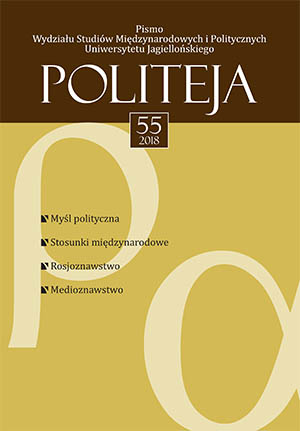
The basic means of influence of the organs of Russian state authority upon the functioning of non-governmental organizations defending human rights is legislative activity. It was with the help of this acitvity that a base was built from the very beginning, thanks to which many non-governmental organizations could be revived or born. From the point of view of the Russian authorities, non-governmental human rights organizations occupy a special place, which has been perceived for 15 years not as support for the ruling elite in the difficult way of shaping a modern state and a democratic society, but as a threat to the functioning status quo. One cannot therefore not get the impression that the regulations concerning the third sector are primarily aimed at hindering or even preventing the activities of non-governmental organizations defending human rights. However, before the vector turned in the policy towards the third sector, in the first period of 1991-1999 we had a positive attitude of the state towards the development of the social sector. The presented article is designed to bring closer the first period of interaction between the state authorities and non-governmental organizations defending human rights, resulting in activities aiming to “regulate” the legal situation of the third sector in the Russian Federation.
More...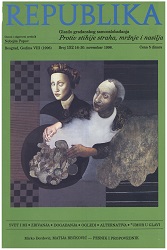
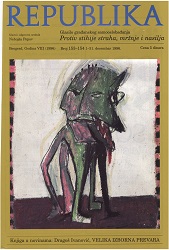



The SPS, after long pressures on the public (and parties, rebels and various organizations), agreed to the Round Table but under the condition that it was just a non-binding talk; in particular, did not mind them to accept the principle of electoral authority
More...

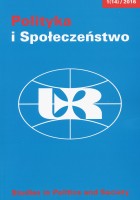
Artykuł omawia perspektywy ukraińskiego prawa informacyjnego w kontekście wojny hybrydowej, która spowodowała powstanie nowych stosunków publicznych określonych przez konfrontację informacji, organizację środków bezpieczeństwa, wprowadzenie reżimów sankcyjnych. Przedstawiono zakres zagrożeń informacyjnych związanych z wojną hybrydową; ich wpływ na analizowaną sferę bezpieczeństwa narodowego. Założono, że w czasie wojny hybrydowej w państwie powstaje szeroki zakres zagrożeń informacyjnych. Ich neutralizacja z jednej strony wymaga zastosowania nadzwyczajnych środków prawnych i administracyjnych, a z drugiej strony może zaprowadzić istotne ograniczenia demokratycznych praw i wolności. Opierając się na dualistycznym charakterze prawa informacyjnego, jako narzędziu ograniczeń gwarancji praw i wolności informacyjnych, argumentuje się, że koncepcja jego rozwoju powinna opierać się na równowadze między interesami bezpieczeństwa narodowego a ideami praworządności.
More...
The article describes the attitudes of Poles towards Jews during the occupation of Poland by Nazi Germany. The examples provided in the article show how much these attitudes varied. On the one hand there was Poles’ spontaneous and heroic fight for the lives of those who escaped from ghettos, which sometimes resulted in the death of those hiding and those who aided them, on the other hand there was the plunder of Jewish property and denunciations, roundups and murders of Jews. The article also shows how far the war reality determined the attitudes of individual Poles towards Jews. Sometimes they had to choose between their own safety or even lives and the lives of others. It happened that they rescued some Jews and some they denounced to the Germans. The article proves that the attitudes of Poles towards the Jewish population, which are often described as black-and-white, were altogether not so unequivocal.
More...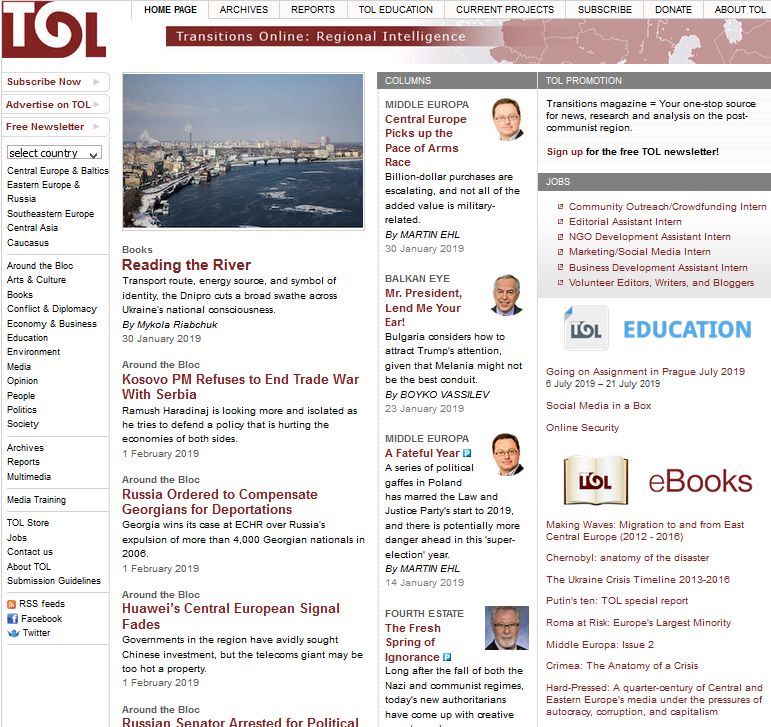
This year’s competition saw 150 anglers from 15 countries fishing for compliments in the scenic mountains of southern Bulgaria.
More...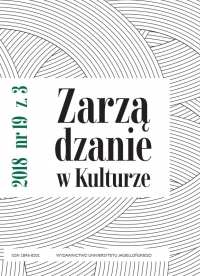
Projects have a widespread presence in the non-governmental sector. Sometimes, they make it possible to perform tasks which would otherwise remain uncompleted due to insufficient funds, for instance. At the same time, however, the increasingly common phenomenon in smaller NGOs is when one large project swallows the organization along with its more modest initiatives. With time, the Cracow’s foundation under scrutiny, which operates in the cultural sector, has evolved from a self-help organization engaged in a number of minor activities, often completely devoid of external funding, into an entity focusing all its strength and resources on one large annual project funded from grants. In her autoethnography combined with the material from individual in-depth interviews, the author, who is both a participant of and a witness to these changes, describes the process of the main project having supplanted the grassroots initiatives, which has resulted, inter alia, in the disintegration within the foundation. Simultaneously, she provides at least a partial solution to this problem in the form of organizational imagination understood as a management style oriented towards people with all their needs and capabilities as well as towards taking action based on far-reaching trust in people.
More...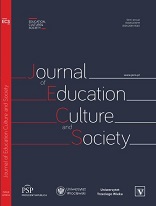
Aim. The aim of the research is to determine the psychological peculiarities of citizens with various types of civic identity. Methods. 190 Ukrainian citizens were interviewed about their relations with parents (or guardians) in the childhood , features of family upbringing, priority values of the parents' family, experience of interpersonal relationships with peers, participation in school/student activities, lifestyle, etc. The following psycho-diagnostic techniques were also used: questionnaire "Level and Type of Civic Identity" (Petrovska, 2018); "World Assumptions Scale" (Janoff-Bulman, adapted by Padun & Kotelnikova, 2008); "Portrait Values Questionnaire" (Schwartz, adapted by Semkiv, 2013); "Interpersonal Trust Scale" (Rotter, adapted by Dostovalov, 2000); questionnaire "Level of Social Frustration" (Vasserman, 2004); "Social Activity Scale" (Lewicka, adapted by Cholij, 2010). Results. The typology of citizens ("devoted", "moderate", "disappointed", "indifferent" and "alienated") was created in accordance with the specificity of the formation of civic identity components (cognitive, value, affective, behavioral). Significance (value)/insignificance, positive/negative attitude towards belonging to the state and community of citizens and forms of activity/inactivity in relation to the state and citizens made up the basis of the classification. Also, psychological peculiarities of citizens with foregoing types of civic identity were determined. Conclusions. The main factors in the formation of a certain type of civic identity are basic beliefs (in particular, the justice of the world, the ability to control the events of one's life and self-value); civic behavioral patterns of reference persons (including civic attitudes of reference persons); social integration and social acceptance (experience of interpersonal relationships with peers); subjectness activity (defending own position, wide range of interests, initiative, active participation in many events); value-semantic orientations (in particular, universalism, self-regulation, safety, tradition); prosocial focus (focus of activity on socially useful affairs); social trust; the fact of meeting the needs of physical and social existence in the state (level of social frustration); experience of interaction with the state in the form of its various agencies.
More...